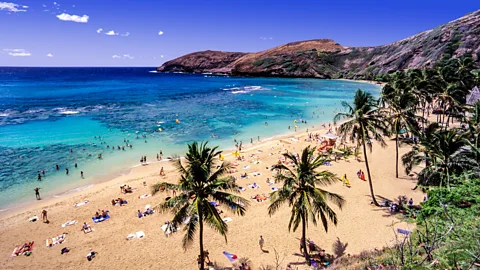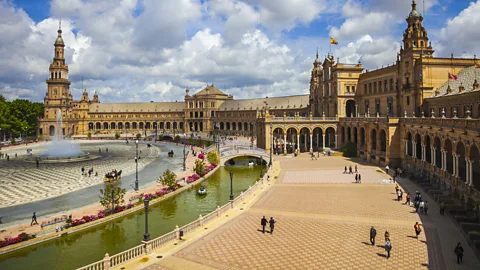The new costs of travel that tourists should know
 John Seaton Callahan/Getty Images
John Seaton Callahan/Getty ImagesTourist taxes are now as much a part a trip as selfies and souvenir shops. And more are on the way.
Hammer Tsui re the first time she realised she was taxed for being a tourist. She and her husband were visiting Barcelona when she discovered that overnight visitors and cruise engers were required to pay a surcharge. The fee, introduced in 2012, will climb to €3.25 a day on 1 April 2024, meaning a couple staying a week will pay more than €45.
"It left me feeling disheartened," said the Hong Kong-based blogger, who documents her travels with her husband. "I've always believed that tourists contribute significantly to the local economy and should be welcomed with open arms." The tax, she thought, "seemed unfair and somewhat unethical".
But whether travellers realise it or not, tourist taxes are now as much a part a trip as selfies and souvenir shops. And more are on the way.
Last month Bali began charging international visitors an entry tax of 150,000 rupiah (£7.50). Venice recently imposed a fee of up to €5 for day visitors and Hawaii's governor has introduced legislation that would charge visitors a US$25 "climate tax". Seville has even just announced a plan to fund the conservation of its popular Plaza de Espana by charging visitors to enter.
This is not a new thing, however. Countries have long taxed travellers by requiring them to buy tourist visas. Airports add fees to airplane tickets; local governments regularly impose hotel and car rental levies; and popular destinations with tourist fees dot the globe, from Bhutan to Belize, Mallorca to Malaysia.
 Gonzalo Azumendi/Getty Images
Gonzalo Azumendi/Getty ImagesBut the recent surge in destinations imposing or raising tourist taxes reflects the ever-increasing pressures of climate change and overtourism – and they look set to stay.
Money raised from all these taxes are often added to a general budget, but many entities also earmark a portion to promote tourism. In some cases, the charges sustainability initiatives, like protecting wildlife, rebuilding ruins and even ing musicians.
Academics say the fees make sense because travellers get to visit places without paying to develop or maintain them, while residents face the burden of litter and crowds. "The tourism industry 'freeloads' on the public realm," said Harold Goodwin, senior fellow in the Institute of Place Management at Manchester Metropolitan University. "What is the argument for tourists and day visitors not contributing">window._taboola = window._taboola || []; _taboola.push({ mode: 'alternating-thumbnails-a', container: 'taboola-below-article', placement: 'Below Article', target_type: 'mix' });
